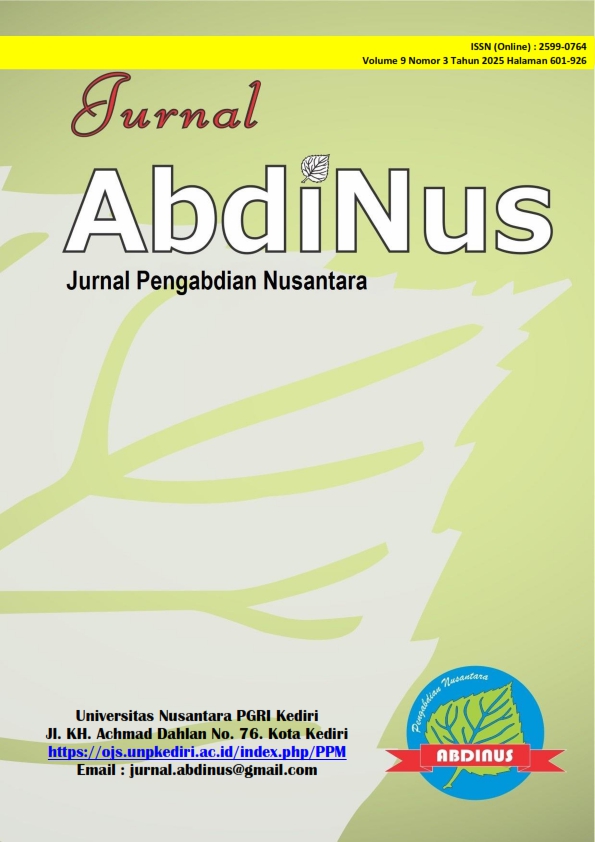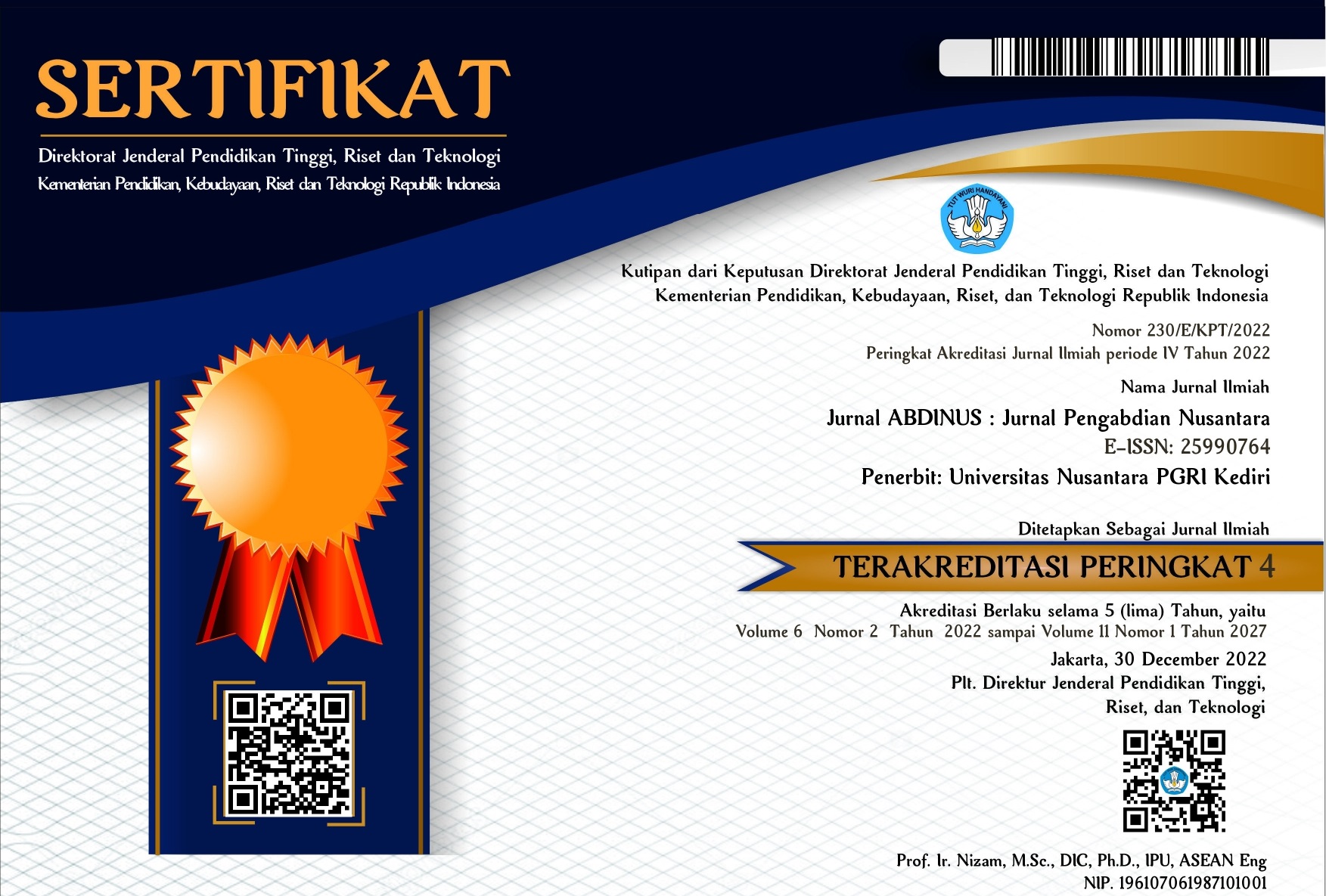Pemberdayaan Guru SD Gugus Muh Syafe’i melalui Meaningful, Mindful, and Joyful, Learning (MMJL) dan Personalized Counseling Approaches untuk Meningkatkan Implementasi Deep Learning
DOI:
https://doi.org/10.29407/ja.v9i3.26840Keywords:
Deep Learning, Personalized Counseling Approaches, Elementary School TeachersAbstract
The implementation of the Merdeka Curriculum in elementary schools requires teachers to design learning that emphasizes deep learning. This type of learning goes beyond cognitive aspects, focusing on cultivating critical thinking, mindfulness, and positive attitudes among students. Teachers in the Muh Syafe’i Cluster, Pringapus District, Semarang Regency, face challenges in integrating the principles of Meaningful, Mindful, and Joyful Learning (MMJL) into their teaching, while also addressing increasingly complex non-academic problems among students. This community service program aims to empower teachers through training and mentoring on MMJL, complemented with basic counseling skills using Personalized Counseling Approaches (PCA). The program was carried out using an Organizational Learning (OL) approach consisting of four stages: socialization, externalization, combination, and internalization. The activity took place at SDN Klepu 01 on May 31, 2025, involving 62 teachers and principals. Results showed significant improvement in teachers’ competencies, with mastery of MMJL increasing from 73.5% to 96.5% and PCA from 74% to 96%. In addition, 83.9% of teachers successfully integrated MMJL into lesson plans, while 78% demonstrated adequate counseling skills during classroom simulations. These findings indicate that the program effectively strengthened teachers’ ability to design MMJL-based learning and apply PCA to address students’ non-academic problems.
Downloads
References
Aminah. (2018). Peningkatan keterampilan konseling guru melalui pelatihan konseling dasar. Jurnal Bimbingan Konseling, 7(2), 45–53. https://doi.org/10.21831/diklus.v5i2.43549
Ananda, R., & Nurjanah, S. (2023). Pengaruh pelatihan keterampilan konseling terhadap efektivitas guru kelas. Jurnal Pendidikan Dasar, 14(1), 22–34.
Basten, D., & Haamann, T. (2018). Approaches for Organizational Learning: A Literature Review. Sage Open, 8(3). https://doi.org/10.1177/2158244018794224
Biggs, J., & Tang, C. (2011). Teaching for quality learning at university (4th ed.). Open University Press.
Nafi’ah, N., & Faruq, U. (2025). Implementasi joyful learning dalam meningkatkan keterlibatan belajar siswa. Jurnal Inovasi Pendidikan, 15(1), 12–20. https://doi.org/10.20961/shes.v7i3.91620
Ruhalahti, S. (2019). Redesigning professional learning: Combining deep learning with digital technologies. Educational Research and Reviews, 14(10), 335–347. https://urn.fi/URN:ISBN:978-952-337-145-3
Saadat, V., & Saadat, Z. (2016). Organizational Learning as a Key Role of Organizational Success. Procedia - Social and Behavioral Sciences, 230, 219–225. https://doi.org/10.1016/j.sbspro.2016.09.028
Sofyatiningrum, E., Hariani, L., & Sari, Y. (2020). Pemberian umpan balik positif sebagai strategi pembinaan siswa. Jurnal Konseling Indonesia, 6(1), 14–233.
Suwandi, S., Retnowati, T., & Pranowo, P. (2024). Deep learning dalam konteks pembelajaran abad 21. Jurnal Pendidikan Dan Kebudayaan, 9(2), 155–165.
Trimurtini, T., & Mulyani, Y. (2024). Strategi meaningful, mindful, and joyful learning untuk pembelajaran efektif. Jurnal Inovasi Pembelajaran, 8(1), 45–57.
Downloads
Published
Issue
Section
License
Copyright (c) 2025 Jurnal ABDINUS : Jurnal Pengabdian Nusantara

This work is licensed under a Creative Commons Attribution 4.0 International License.














